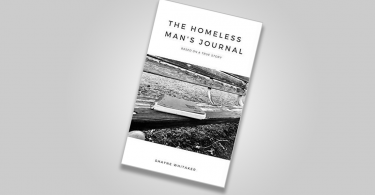As Emma Watson announced that April’s allocated reading for the Our Shared Shelf book club was How To Be a Woman by one of my feminist heroes, Caitlin Moran, I rejoiced. A firm fixture on my bookshelf, the hilarious memoir/guidebook sees Caitlin answer the questions that every modern woman is asking.
The Goodreads group has become more than just a monthly analysis of feminist texts. Discussions on topics ranging from sustainability to depression have bloomed from Our Shared Shelf. Incredibly, members from all over the world are arranging gatherings to meet like-minded people.
It is interesting to see that, as the months go on, the conversations increasingly move away from simply critiquing the text – instead, the group is full of people debating over real-life issues. Inspired by Moran, users spoke about abortion, the expectation of women to have children, and whether or not we should allow ourselves to idolise role models.
“What is feminism? Simply the belief that women should be free as men, however nuts, dim, deluded, badly dressed, fat, receding, lazy and smug they might be”- Caitlin Moran
Within the discussion of How To Be a Woman, one of the busiest comment threads was centred around Caitlin’s ‘problematic’ tweet in 2012. When asked if she questioned Lena Dunham in an interview on her choice to not include a single woman of colour in her sitcom Girls, Caitlin replied to the user that she “literally couldn’t give a shit about it”. Various commenters expressed their disappointment that Caitlin was unfazed by the lack of diversity in Girls before one user eloquently explained that that Caitlin addressed the issue in her latest book. In a chapter aptly named ‘Women Keep Fucking Things Up’, from Moranifesto:
“Twenty-seven-year-old Lena Dunham, meanwhile, writes, directs, produces and stars in one of the most talked-about shows of the last ten years – HBO’s Girls. She tackles abortion, STD’s, pornography, masochism and her generation’s parlous reversal of fortune. […]” “But as the first series of Girls began to air, it became sadly apparent that Dunham hadn’t included a single non-white character in the show. “They should call it White Girls” was the common pay-off to angry pieces about it. Dunham screwed up.”
“We are all working on a massive patchwork quilt called ‘A Better Future’ here – anyone can pull up a chair and have a go. The only rule of Feminism Quilt Club is that we don’t expect one woman to sew the entire damn thing herself, while bitching about her to her face. Oh and crisps. You have to bring crisps”.
For many readers, her comment detracted from the real message that Caitlin wants to spread. We tend to put famous ~feminists~ like her on a pedestal; we expect them to never mess up and say something brash or insulting.
“Simply being able to vote isn’t the same as true equality. It’s difficult to see the glass ceiling because it’s made of glass. Virtually invisible. What we need is for some more birds to fly above it and shit all over it, so we can see it properly.”
Despite the disappointment over some of the remarks Caitlin has made in the past, the majority of readers enjoyed How To Be a Woman – though perhaps not in the way they have devoured past offerings from Gloria Steinem and Alice Walker. Whereas every other month’s thread has been brimming with favourite quotes and insightful analysis, the comments on Moran’s memoir have been largely debating the validity of her feminism. In one chapter, Moran criticises the profession of stripping, and essentially says, “Girls, get off the pole. You’re making us look bad.” It can make for uncomfortable reading from someone who, for the most part, preaches equal rights and free will.
“What part of ‘liberation for women’ is not for you? Is it freedom to vote? The right not to be owned by the man you marry? … Did all that good shit GET ON YOUR NERVES? Or were you just DRUNK AT THE TIME OF SURVEY?”
Admittedly, How To Be a Woman – although another feminist text – marked a different writing (and reading) style than those from previous months. Interestingly, many commenters theorised that Caitlin’s lack of formal education (she was home-schooled) has equipped her with her casual diary-like syntax, complete with UNNECESSARY capitalised words and an abundance of exclamation marks.
How To Be a Woman is a great holiday read, but if you’re looking for Germaine Greer-esque commentary, you won’t find it here.
You can follow Our Shared Shelf on Goodreads. May’s book is The Argonauts by Maggie Nelson.








